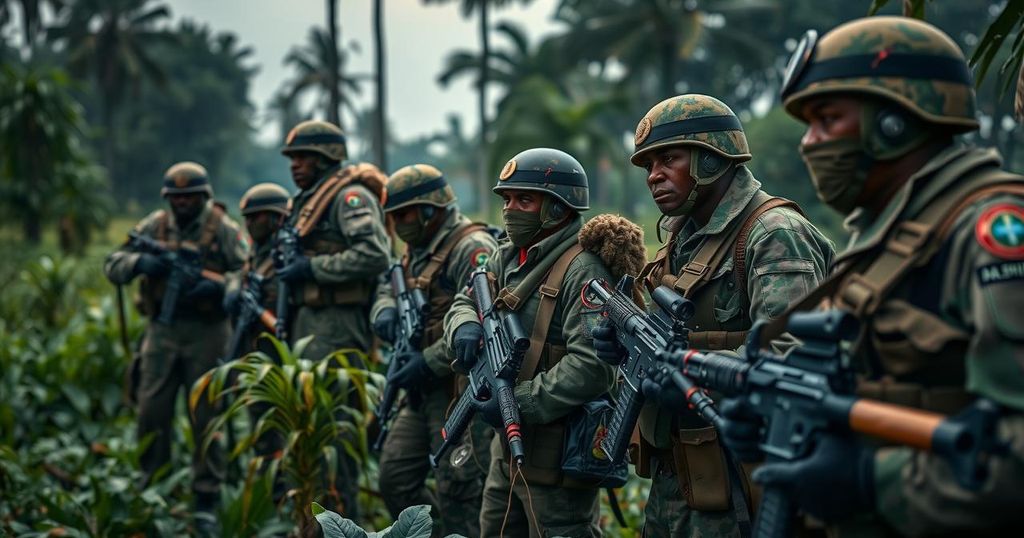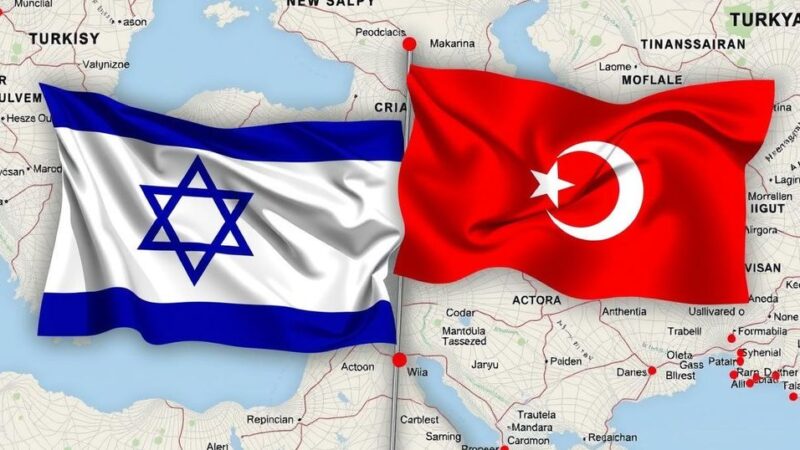Congo’s government has accused the Rwanda-backed M23 rebel group of ethnic cleansing in its eastern territories, with warnings of mass displacement and violence against local populations in North Kivu province. Minister Jacquemain Shabani stated the foreign population influx signifies ethnic cleansing. The humanitarian crisis deepens as fighting persists despite a recent truce, affecting over seven million displaced individuals.
The government of the Democratic Republic of Congo has accused the M23 rebel group, allegedly supported by Rwanda, of conducting acts of “ethnic cleansing” in the eastern regions of the country, specifically in North Kivu province. Jacquemain Shabani, the Minister of the Interior, emphasized the alarming influx of foreign populations in areas like Rutshuru and Masisi, where local communities have reportedly been forcibly displaced. This accusation arises shortly after M23 appointed administrators in these contested regions, highlighting a stark escalation in the ongoing violence amidst a backdrop of over 100 armed groups competing for control in this mineral-rich area. The M23 rebel group, primarily composed of ethnic Tutsis, emerged from the Congolese army over a decade ago and notably captured Goma, the capital of eastern Congo, in 2012. The conflict has significantly worsened, creating a humanitarian crisis affecting over seven million displaced individuals, many of whom struggle to access essential aid. The Congolese government asserts that Rwandan support fuels the M23’s resurgence, amidst serious allegations from U.S. and U.N. experts of Rwanda providing military assistance to the group. While Rwanda denies involvement in war crimes, it acknowledged maintaining troops and missile systems in eastern Congo under the pretext of ensuring national security. Although a U.S. and Angola-brokered truce in July has mitigated some hostilities between Rwandan and Congolese forces, clashes between M23 and various militias persisted, resulting in tragic fatalities among civilians, as seen in August’s incidents where 16 villagers lost their lives. The ongoing turmoil raises urgent concerns regarding both regional stability and the protection of vulnerable populations caught in conflict. The situation remains critical, with humanitarian organizations warning of the dire need for intervention to alleviate the suffering of affected communities.
The conflict in eastern Congo has its roots in a multitude of factors, including ethnic tensions, competition over resources, and the complex legacy of regional wars that have unfolded in the area over the past few decades. With over 100 militia groups operating throughout the region, the humanitarian crisis has escalated, manifesting in widespread displacement and a lack of access to basic necessities. The M23 rebel group, having a significant presence in the region, plays a key role in the ongoing struggle, and its affiliations with Rwanda further complicate the geopolitical landscape. International stakeholders, including the United Nations and the United States, continue to monitor the situation, highlighting the complexities surrounding military involvement and regional diplomacy in efforts to stabilize the area.
In conclusion, the recent allegations by the Congolese government against the M23 rebel group mark a significant escalation in tensions in eastern Congo, raising serious concerns regarding humanitarian conditions and regional security. The issue of ethnic cleansing, if substantiated, underscores the dire consequences of the ongoing conflict. Furthermore, international involvement, primarily from Rwanda and multi-national diplomatic efforts, highlights the complexity of resolving the multifaceted crisis that continues to affect millions.
Original Source: apnews.com







